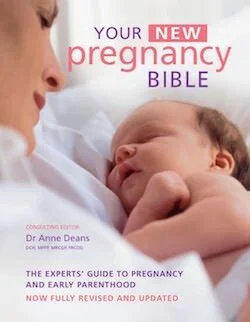Rautava et al (2012) Maternal probiotic supplementation during pregnancy and breast-feeding reduces the risk of eczema in the infant. J Allergy Clin Immunol. 130(6):1355-1360.
Probiotics during pregnancy and breastfeeding may curb baby’s risks of developing eczema
Mothers with allergies: take note. Consuming probiotics during pregnancy and breastfeeding could help your baby build resistance to eczema (atopic dermatitis), according to a new Finnish study.
Scientists from Turku University Central Hospital, Finland, suggest that maternal intake of probiotics stimulates the production of immune substances that are transferred to the infant via the placenta or breast milk. These immune factors aid in the maturation of the baby’s immune system and gut flora, thereby reducing risks of developing eczema, a long-term skin disorder involving scaly, itchy rashes as well as swelling and inflammation of the skin.
Probiotics — The friendly live microorganisms
Probiotics are 'good' bacteria that can enhance our health when consumed in right amounts. They colonise the intestine where they help to maintain a balance between healthy and harmful bacteria by impeding the growth of dangerous organisms.
Probiotics can be found in yoghurt, kefir and soybean products like tempeh, miso, and natto. They are also available as supplements.
Study details
Led by Dr Rautava, the researchers recruited 241 pregnant women with a history of allergies, which implied that their babies were at higher risks of developing eczema or other allergic reactions.
The mothers were randomly allocated to receive either a placebo or one of two probiotic formulations — Lactobacillus rhamnosus LPR and Bifidobacterium longum BL999, or L. paracasei ST11 and B. longum BL999. These probiotic combinations were given as a powder in water.
The women ingested their assigned drink once daily during the last two months of gestation and the first two months of breastfeeding.
The scientists followed the babies during their first two years of life and they were tested for sensitivities through skin prick tests conducted at ages of 6, 12 and 24 months.
The probiotics used in this study were offered by Nestle, which promotes probiotics in infant products such as infant formula.
Study findings
Both probiotic formulations significantly reduced the babies’ risk of eczema: 71% of infants whose mothers received the placebo developed eczema rash at least once compared to only 29% of babies whose mothers took either of the formulations.
The placebo children also had higher incidences of chronic eczema: 26% compared to 6-10% of those in the two probiotic groups.
However, the protective effects did not seem to extend to other sensitivities. By age two, regardless of whether the mothers had taken probiotics, there was no difference in the way the children responded to common allergens such as milk, wheat, soy or dog and cat dander. Around 25% of the children were sensitive to an allergen as shown by skin prick tests.
Specific pre- and postnatal probiotic regimens, taken to decrease eczema risks in babies of allergic mothers, are safe and effective, the researchers reported in the Journal of Allergy and Clinical Immunology. However, while the results are encouraging, Dr Rautava told Reuters Health in an email that 'it is not yet possible to make recommendations for routine use of probiotics to reduce the risk of eczema'.
You might also like:
The role of probiotics in breastfeeding
Microbial richness of breast milk is influenced by mother’s weight and mode of delivery
Why breastfeeding is the best choice for you and your baby
What to eat when breastfeeding
Breastfeeding may guard against obesity later in life
Breast is best: New study shows that mother’s milk boosts baby’s immunity
BOOK REVIEW

Your New Pregnancy Bible
The experts' guide to pregnancy and early parenthood - by Dr Anne Deans
MOST POPULAR
Your guide to second trimester nutrition
Your guide to third trimester nutrition
Bulimia, fertility and pregnancy
Caffeine in pregnancy: How much is too much?
“Pass the sick bag”: Eating your way through Hyperemesis Gravidarum
The role of probiotics in breastfeeding
Digestive problems during pregnancy
Calcium during pregnancy – what you need to know